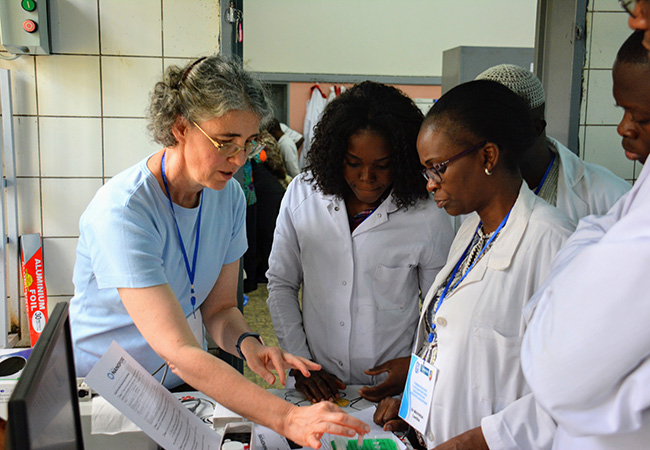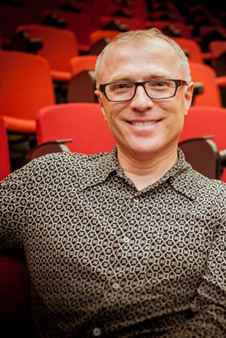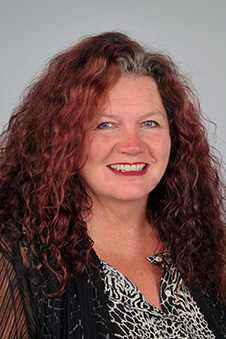
Associate Professor Jo-Ann Stanton training scientists in molecular sequencing techniques in the Democratic Republic of Congo.
A University of Otago molecular biologist has received new Government funding of $235,746 for Covid-19 related research to develop an effective point-of-care test for the infectious disease.
Associate Professor Jo-Ann Stanton is one of three University of Otago researchers to receive part of the Health Research Council and Ministry of Health's $3.8 million funding, split among 13 new research projects nationally.
Professor Michael Baker ($500,000) and Senior Lecturer Lesley Gray ($179,904) both from the University of Otago, Wellington, also received funding for new projects.
Associate Professor Stanton is working collaboratively with a multidisciplinary team of both academic and commercial experts, together with rural Māori communities and primary healthcare providers to develop a test to screen patient samples for Covid-19 at the point-of-care, whether that be at a doctor's clinic or the airport.
“At the moment, swabs are taken and sent to a central laboratory for testing. This is really robust and the most cost-effective way of doing things. What we are looking to do is move the test so it is closer to the patient,” Associate Professor Stanton explains.
“If you live in the provinces there is currently an average three-day wait for test results. That may not be an issue for some people in some scenarios, but in other cases it can be and we are looking to be able to produce the test result a lot quicker.”
Associate Professor Stanton and her team in her laboratory at the Department of Anatomy have been working for several years on developing hand-held diagnostic technology which can be used as point-of-care testing devices.
“We are looking at taking laboratory-based tests, particularly those specific for DNA and RNA, repackage and reformat them, so we can take them out of the laboratory and put them in the hands of people who need the answers quickly – people like emergency care first responders,” she explains.
In recent years, Associate Professor Stanton has used molecular technology in a similar way to point-of-care testing to help diagnose a plant pathogen destroying crops on African farms, paving the way for preventing crop failures, vital to the African economy.
But she is not surprised she is now using the technology to identify the coronavirus. “Rapid testing is right at the centre of the Covid-19 response and supports effective identification of cases and contact tracing. This tool has the potential to greatly speed up this process and to give us the edge we need to stop this virus.”
Associate Professor Stanton says she is “extremely honoured” and “really happy” to receive the funding.
“It is a fantastic opportunity to bring together a team of experts. We are working with our own academic staff Miguel Quiñones-Mateu, James Ussher, Jemma Geoghegan and Northland GP Lance O'Sullivan and Tauranga healthcare provider Anna Rolleston – and I just love the idea of bringing us all together to build something fantastic.
“We are a multidisciplinary team from both the commercial and academic sectors coming together and that is really exciting - there is no one discipline that will develop the end –to –end solution on their own – as a molecular biologist I can't develop this on my own.”
Research aims to guide an effective and equitable pandemic response

Professor Michael Baker.
Professor Baker is a public health medicine specialist who has become well known nationally and internationally as he provides regular expert advice to the Government and media commentary and scientific reports on the pandemic. The goal of his Covid-19 project is to guide an effective and equitable pandemic response and to learn as much as possible so New Zealand is better prepared for the next major public health emergency.
The project brings together a diverse multidisciplinary team including pandemic experts from Otago, Massey and Auckland Universities (Te Pūnaha Matatini), Māori researchers (in partnership with Kōkiri Marae in Wellington), Pacific researchers, systems experts from ESR, and a citizen science project run by University of Otago students that aims to understand lived experience of the pandemic. The project is also supported by a photographer and videographer from the University of Otago, Wellington, who will contribute to the historical record by documenting the pandemic and the response.
Professor Baker, the principal investigator for the project, explains that New Zealand and our Pacific neighbours are taking an approach to Covid-19 that appears unique across the 'western world', but very similar to several countries in Asia. This response is explicitly aimed at eliminating the virus from the country.
“We know this approach is tough, but it offers many advantages in terms of health and equity and hopefully allows us to emerge sooner from the grip of the pandemic than other strategies,” he says.
“There is huge international interest in what New Zealand is doing and the benefits and costs of different responses to the pandemic. Unfortunately, the world is becoming a more dangerous place for emerging infections and we need to learn as much as possible about how island nations can protect themselves from pandemic threats.”
Project leader Dr Amanda Kvalsig says this project is exciting because it is so fast moving. “We are actively studying the pandemic response as we shape it and improve it. We're all on a very steep learning curve and we'll be aiming to feed our findings straight back into the response to stay one step ahead of the virus.
“Both the pandemic itself and the response are having profound impacts on people's health and wellbeing. Some will be hit harder than others and a major focus of this work will be to understand what is happening right across society so that we can fine-tune strategies and ensure appropriate protections are put in place.”
Just how do Kiwis self-isolate?

Senior Lecturer Lesley Gray.
How New Zealanders self-isolate will be the focus of Ms Gray's project. A Senior Lecturer in the Department of Primary Healthcare and General Practice, Ms Gray aims to provide a comprehensive picture of how people are self-isolating to assess knowledge, attitudes and practices regarding isolation measures. Findings will be fed back rapidly to the Ministry of Health to support immediate improvements in how self-isolation is managed.
“This is a collaborative research project between the University of Otago, Wellington, the Joint Centre for Disaster Research and the School of Psychology at Massey University, Wellington as well as our science communication partner, Dr Siouxsie Wiles from the University of Auckland who, along with Professor Michael Baker, has become a familiar face of Q&A to so many during Covid-19,” Ms Gray explains.
“Self-isolation and physical distancing are critical parts of Aotearoa New Zealand's all-of-government pandemic response. However, the effectiveness of this strategy is highly dependent on individual compliance.
“While research has identified factors that may affect individuals' intentions to self-isolate, less is known about what people actually do or did in the face of a disease outbreak and the factors that help or hinder those actions. This research seeks to provide some statistically significant answers to these questions.”
Praise for rapid response by HRC and MOH
Professor Baker congratulated the Health Research Council and Ministry of Health for supporting the research and doing this so rapidly.
“Most research on health disasters is done after the event. This was an exceptionally fast funding round and means the research can be conducted while the pandemic is happening and used to inform the response.”
For further information, contact:
Associate Professor Jo-Ann Stanton
Department of Anatomy
University of Otago
Email jo.stanton@otago.ac.nz
Professor Michael Baker
University of Otago, Wellington
Email michael.baker@otago.ac.nz
Liane Topham-Kindley
Senior Communications Adviser
Mob +64 21 279 9065
Email liane.topham-kindley@otago.ac.nz
FIND an Otago Expert
Use our Media Expertise Database to find an Otago researcher for media comment.